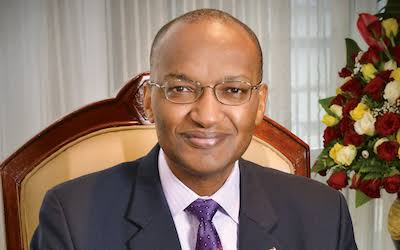Microsoft Courts Nigeria Digital ID4D
Global tech giant, Microsoft Corporation says it is willing to partner the Nigeria Digital Identification for Development (ID4D) project in the areas of capacity development and data protection.
Microsoft’s Government Affairs Lead, Nonye Ujam disclosed this during a working visit to the Nigeria ID4D project office in Abuja, Wednesday.
According to a Press Release signed by the Manager, Communications of the Nigeria Digital ID4D, Dr. Walter Duru and made available to newsmen, Ujam lauded the ID4D project for its timely intervention in the areas of data protection and digital identity in Nigeria, expressing the readiness of Microsoft to collaborate with the project to succeed.

“We are here to ensure that we support you to make things work very well. We are happy with the achievements Nigeria ID4D has recorded in such a short period.”
Read also : Microsoft Appoints New MD for Innovation Hub in Kenya
“Microsoft Corporation has made a lot of investments and interventions in capacity development and cyber security. Beyond supporting governments in the area of capacity development, Microsoft meets their stakeholders where they are, hand-hold and close identified gaps. As people are working hard to upgrade and update themselves, that is how hard the bad players are working to update their skills. This is why we must take data protection and cyber security very seriously.”
Responding, Project Coordinator, Nigeria Digital Identification for Development, Musa Odole Solomon expressed the readiness of the project to partner with Microsoft.
“We are open to collaborating with as many relevant stakeholders as possible to ensure that the project succeeds. We want the capacity of ecosystem implementing partners enhanced.”
Read also : Ghanaian Fintech Startup Zeepay Secures $10M Debt Round To Expand Remittance Services
Speaking on data protection in Nigeria, Solomon stressed that “the project is working very hard to ensure that a principal law is in place. We are constrained by time, considering the fact that elections are close. We are battling to ensure that we balance the urgency with quality. It will not just be done quickly, but also done very well. Stakeholder’s engagement is an ongoing activity and Microsoft is our major stakeholder. We are ready and willing to work with you.”
“We are happy with your interest in capacity development. We operate an ecosystem model and our implementing partners need to benefit from the capacity building plans. It is one of our deliverables and we are willing to partner with Microsoft to close gaps in capacity.”
Solomon used the occasion to call on Microsoft Corporation to consider extending support to the National Identity Management Commission (NIMC) and other ecosystem implementing partners.
The Coordinator used the occasion to invite Microsoft to the second leg of Focus Group Discussion on Nigeria’s Data Protection law, scheduled to hold at Lagos on the 1st of September, 2022.
Part of the activities lined up for the Lagos engagement is a courtesy call on the leadership of Microsoft Corporation in Nigeria. Conversations will center around data protection, capacity development and other areas of collaboration.
On the project coordinator’s team that received Ujam were the Internal and external communications Managers of the project, Dr. Walter Duru and Mouktar Adamu.
Read also : South African Online Payments Group Joins Forces with Samsung
The Nigeria Digital Identification for Development (ID4D) project is a Nigerian project, jointly funded by the World Bank, European Investment Bank and French Development Agency.
Kelechi Deca

Kelechi Deca has over two decades of media experience, he has traveled to over 77 countries reporting on multilateral development institutions, international business, trade, travels, culture, and diplomacy. He is also a petrol head with in-depth knowledge of automobiles and the auto industry















